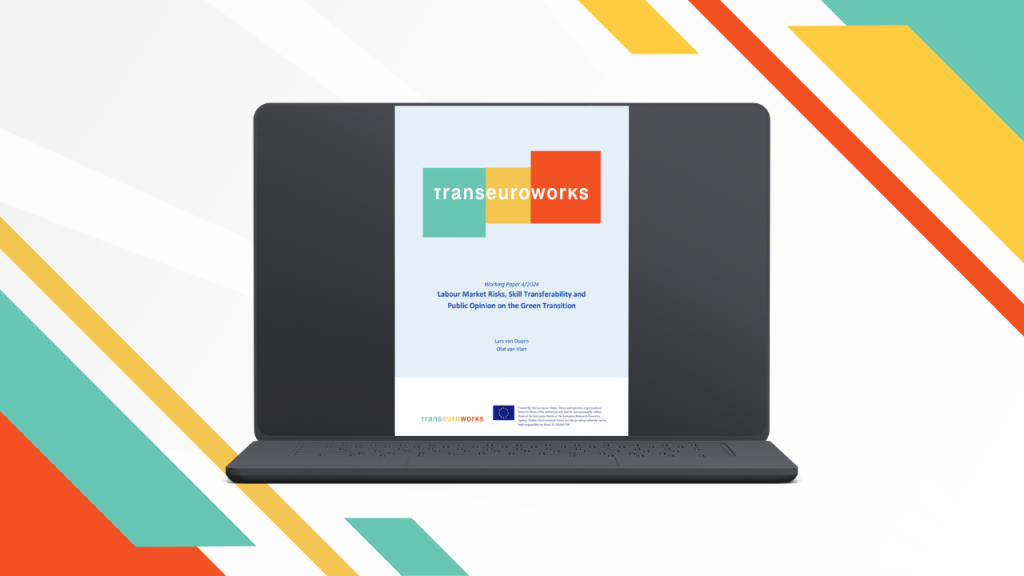The last TransEuroWorkS working paper by Lars van Doorn and Olaf van Vliet, Leiden University, delves into the complex interplay between the green transition and the European labour market. The paper highlights the potential risks and opportunities that arise as economies shift towards more sustainable practices.
Key Findings
1. Labour Market Risks: The green transition, while essential for environmental sustainability, poses significant risks to the labour market. Industries reliant on fossil fuels and other non-renewable resources are likely to face substantial disruptions. Workers in these sectors may experience job losses, necessitating a strategic approach to manage these transitions effectively.
2. Skill Transferability: One of the critical factors in mitigating labour market risks is the transferability of skills. The paper emphasizes that workers need to acquire new skills relevant to green technologies. Effective skill transferability can help workers transition smoothly between sectors, reducing unemployment and ensuring a more resilient workforce. This involves not only retraining programs but also policies that support lifelong learning and adaptability.
3. Public Opinion: Public support for the green transition is closely linked to perceptions of job security and the availability of retraining programs. The paper reveals that when people feel secure in their employment prospects and have access to retraining opportunities, they are more likely to support environmental policies. This highlights the importance of integrating social policies with environmental initiatives to garner broader public support.
Policy Recommendations
The working paper provides several policy recommendations to address these challenges:
Investment in Education and Training: Governments should invest in education and training programs that focus on green skills. This includes vocational training, apprenticeships, and continuous professional development.
Support for Affected Workers: Policies should be designed to support workers in industries that are most affected by the green transition. This could include financial assistance, job placement services, and mental health support.
Promotion of Green Jobs: Governments and businesses should work together to promote the creation of green jobs. This involves not only direct employment in renewable energy sectors but also in related fields such as energy efficiency, sustainable agriculture, and green construction.
Public Awareness Campaigns: Increasing public awareness about the benefits of the green transition and the support available for workers can help build public support for environmental policies.
Conclusion
The working paper “Labour market risks, skill transferability and public opinion on the green transition” provides valuable insights into how the green transition can be managed to benefit both the environment and the labour market. By addressing skill gaps and fostering public support, Europe can navigate the challenges of this transition more effectively.
The full paper is available for further details here.

